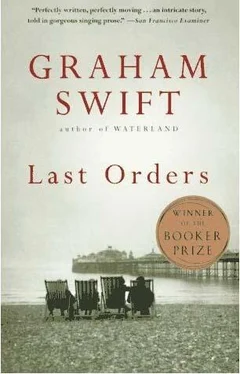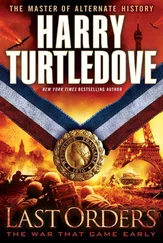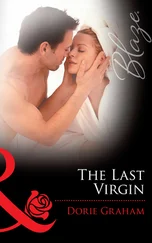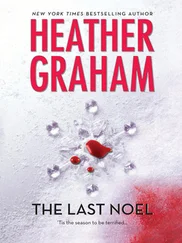I think, Maybe.
Vince says, 'We was beginning to wonder, Raysy, we was beginning to think you might've got lost.'
Vince is holding a guidebook. Vic's got the bag. I'm not holding anything but it's like everyone can see that Raysy's got a lot of something that aint his.
I can feel the cathedral behind me, looking at me.
Vince says, 'We was in the cloisters. Did you clock the cloisters?' Like I ought to have done.
I say, 'Yes, I saw the cloisters/ thinking, Small lies are easy.
Then we head back the way we came, out through the gateway and along the narrow streets, except we take a different narrow street from the one we came up. It's called Butchery Lane, which is why we take it. Vince says we ought to. Then as we turn into it the rain comes pelting down. But there's a little pub half-way along, the City Arms, and it's open, and Lenny says a quick one wouldn't hurt, would it?
Then he says, straight-faced, serious, sitting there in my office, hands pink and scrubbed from a day's butchering, like he's a special sort of client who's come washed and ready for his own laying out, 'As a matter of fact, Vie - I can say this to an old mallow - I wouldn't mind being buried at sea.'
Well they must be there by now, they must have done it. Tipped him in, chucked him. For all I know, they're halfway back again or they're making a day of it, they're out on a spree, donkey-rides all round, now the job's done, down there in Margate.
But I still think this is where I should be. My own journey to make. Their journey and mine. The living come first, even the living who were as good as dead to him, so it'd be all one now, all the same, in his book. And I've already said goodbye to him for the last time, if not the first. Goodbye Jack, Jack old love. They can say that June won't ever be the wiser if I missed this day with her for the sake of one last day with him, there have been missed days before, about a dozen of them once, long ago, and you don't ever get a second chance to scatter your husband's ashes. But how do they know she wouldn't know? And someone has to tell her.
If she won't be the wiser, he won't either.
And I don't think I could've done it. Stood there on the Pier, when it should've been the Jetty anyway, waves below me, salt in my eyes, stood there with them all watching me. You first, Amy, whenever you're ready, take your time. Wind up my skirt. The way the day's turned out, I'd say it's blowing half a gale down there in Margate.
This is where I belong, upstairs on this bus. It seems to me that for years now I've been more at home on a number 44 than I have been anywhere else. Neither here nor there, just travelling in between. I don't know if I could ever have made my home in a bungalow in Margate. Tin packing it in, Ame,' he says. When I'd long since given up on him, when I'd long since thought it could never happen, when I thought, One day he'll just drop dead there, behind the counter, in his striped apron, cleaver in his hand, and that's how he'd want it, another carcass to deal with. Tm jacking it in. Geddit?' Ha. 'It's a new life for you and me, girl.' I don't know what caused it, what suddenly tipped him over, what blinding flash. But he looked at me as if I'd be overjoyed, as if he wasn't looking at the woman he'd been looking at for fifty years, he was looking at someone new. He said, 'Margate. How about Margate?' As if we could put the clock back and start off again where it all stopped. Second honeymoon. As if Margate was another word for magic.
That's when I knew that the tables had turned. It was me who'd thought all those years ago, when I first said goodbye to him, that you always get a new beginning, the world doesn't come to an end, just because. I still had the power to choose. I chose June not him. I watched him set solid into Jack Dodds the butcher, Jack Dodds, high-class butcher, have a bit of mince, missis, have a bit of chuck, because he couldn't choose June too, couldn't choose what was his, it was all he had to do, and I thought I'm the one who can still change. I did, once. But when he looked at me then, like he was looking at someone I wasn't, I knew I was stuck in a mould of my own. Of this woman who sits every Monday and Thursday afternoon on a number 44 bus. Even a week after her husband has died.
As if it was my fault, after all, for deserting him, for saying goodbye. Once, twice.
And she'll never know. Never.
Margate, Margate. And what about June?.
There's something about a bus. A red double-decker, sloshing and chugging through the rain, with its number up front and its destination and its route, which doesn't change from one year to the next. As if as long as there's a number 44 going from London Bridge to Mitcham Cricketers the world won't fall apart, London Bridge won't fall down. As if, if it's true what he always used to yanter on about and only because his old man used to spout the same, that Smithfield is the heart of London, bleedin 'eart-a-Lunnun, then the red lines of the bus routes must be the arteries, bleedin arteries, and veins.
Never once in a cab. On Jack Dodds' takings? And never on the Tube, though it's quicker, Northern Line, all the way to Morden. Because I like to see, I like to think while I'm journeying, while I'm in between. I like to look around me. And only a dozen times in a camper. How many times was it? Not much more than a dozen, eh Ray?
But why have I come upstairs today? Upper deck like a ship, swishing through the rain. To prove I'm still an able-bodied woman, not one of the old crows downstairs? To prove I can still choose? To get a new view of the world slipping by? Lambeth, Vauxhall, Battersea, Wandsworth. How could I have done it, Ray, stood there with you, sharing his ashes? This is where I belong, number 44. Have a bit of ash, missis. And as long as the red buses keep on running, then the red blood will keep on flowing, the heart will keep on pumping, pumping. Oh Ray, you're a lucky man, you're such a little man. Oh my poor Jack.
So I spread the Racing Post in front of me with the whole Doncaster card. Then I lit a ciggy and I got out my form book and my notes. Ray Johnson's Register, '87, '88, '89. Always keep a log of your bets. Then I scanned the races and runners, doing the calculations in my head that come natural after a while, the eliminations, the percentages, the fields to go for and the fields to stay clear of. People think I'm Lucky Johnson and it's all done by sixth sense, and sometimes it is, sometimes a flutter's a flutter. But the reason why I'm quids-in, just about, with the nags, and Jack Dodds and Lenny Tate won't ever be, is because everyone wants to believe in hunch bets, and it may look like luck but it's ninety-per-cent careful clerking, it's ninety-per-cent doing your sums. I aint worked in that insurance office for nothing. People think it's horses from heaven, answering your prayers, but it's learning how to beat the bookie, and if you want to beat the book-keeper, keep a book.
So I studied the runners, stroking my jaw, thinking, Long odds, long odds. Off-course bet, so there's the tax. On a thousand quid. Thinking, Early-season handicaps are a pig in a poke. Thinking, If I was there it'd be easier, it's always easier if you're there. You see the nags, you get the scent, it aint no blind date. And you get the compensations. The hooves on the turf, sun on the silks, Irish gab. The whole great ballyhoo of beer and hope. Thinking of all the things Jack won't ever look on or listen to again.
The smoke from my ciggy curled towards the window.
Fluffy clouds after showers, a breeze, the going good to soft. The going.
I looked at my watch: eleven thirty. Only a fool bets early, the scent changes, every minute, there's the sums and the scent. Only a fool bets early. But what if? Suppose, if Jack.
Читать дальше












